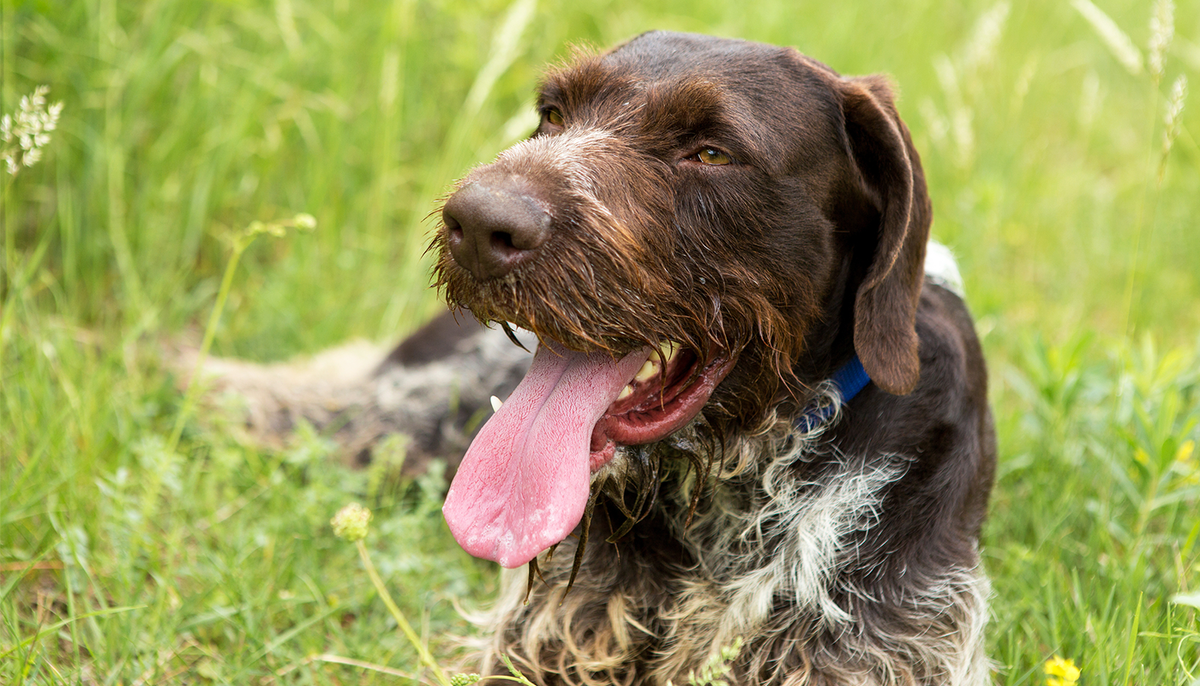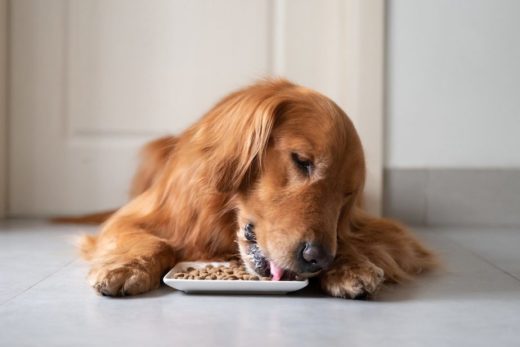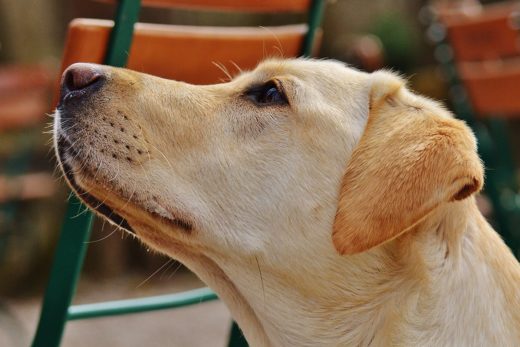
Panting is as natural to dogs as sweating is to humans. We expect our dogs to pant on a hot, sunny day or during exercise to cool down. However, sometimes we may find our dog panting at night or showing signs of restlessness like pacing.
Sometimes dogs won’t stop panting and pacing. When there’s no apparent cause, owners can quickly become distressed, wondering, “why won’t my dog stop panting?” Or why is the dog panting in the first place?
Why Do Dogs Pant?
Most of the time, panting is both natural and healthy.
Unlike humans, dogs only have sweat glands on their paw pads, which doesn’t help cool down. When they get warm or start heating up through exercise, they release excess body heat through their mouth.
This means warm blood is sent to cool down by close contact with fresh air in the open mouth.
Simultaneously, water vapor evaporates from the tongue, inner mouth, and the back of the throat.
Panting is not the best mechanism in the animal kingdom for cooling down, mainly because dogs are built to retain heat more than release it.
But it is the best mechanism dogs have, so it’s natural to see a dog panting whenever it’s hot or they have been running around.
Short-nosed—brachycephalic—dogs such as Pugs or Bulldogs tend to pant more. Their shorter airways don’t allow them to regulate their body temperatures as easily.
It also makes them prone to various medical conditions such as reverse sneezing.
Humidity can interfere with the panting process, so keep an eye on your dog in humid regions. They may overheat more quickly.
But if the panting is excessive and it’s not very hot, like at night, the causes may be more serious.
Usually, abnormal panting presents itself with other symptoms, such as restlessness and pacing.
What’s the Difference Between Normal and Abnormal Dog Panting?
It’s a good idea to count your dog’s breaths per minute when they are resting and after exercise so that you know what is normal for them.
This way, you can get an idea if your dog is panting too much. In general, dogs breathe between 15 and 20 times a minute. Anything from 35 to 40 breaths per minute while resting is considered abnormal.
If you find that your dog’s respiratory rate is abnormally high when resting, take them to a cooler, better-ventilated area.
Allow them half an hour to an hour before checking again. If the problem persists, it may be time to contact a vet.
Please note, waiting half an hour does not apply to the signs of heatstroke. If your dog is displaying symptoms of heat exhaustion or heatstroke, you need to intervene immediately.
There are other signs of abnormal panting and breathing to look out for, such as:





